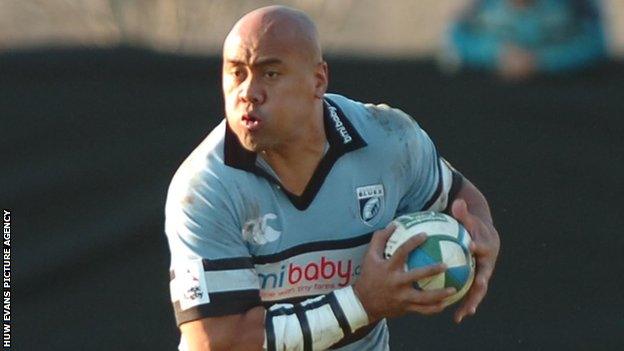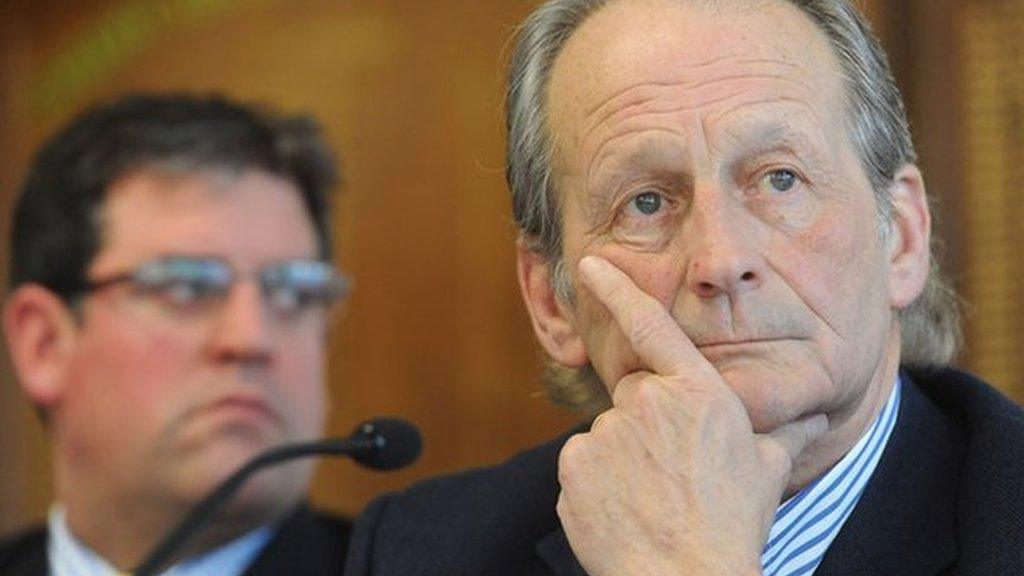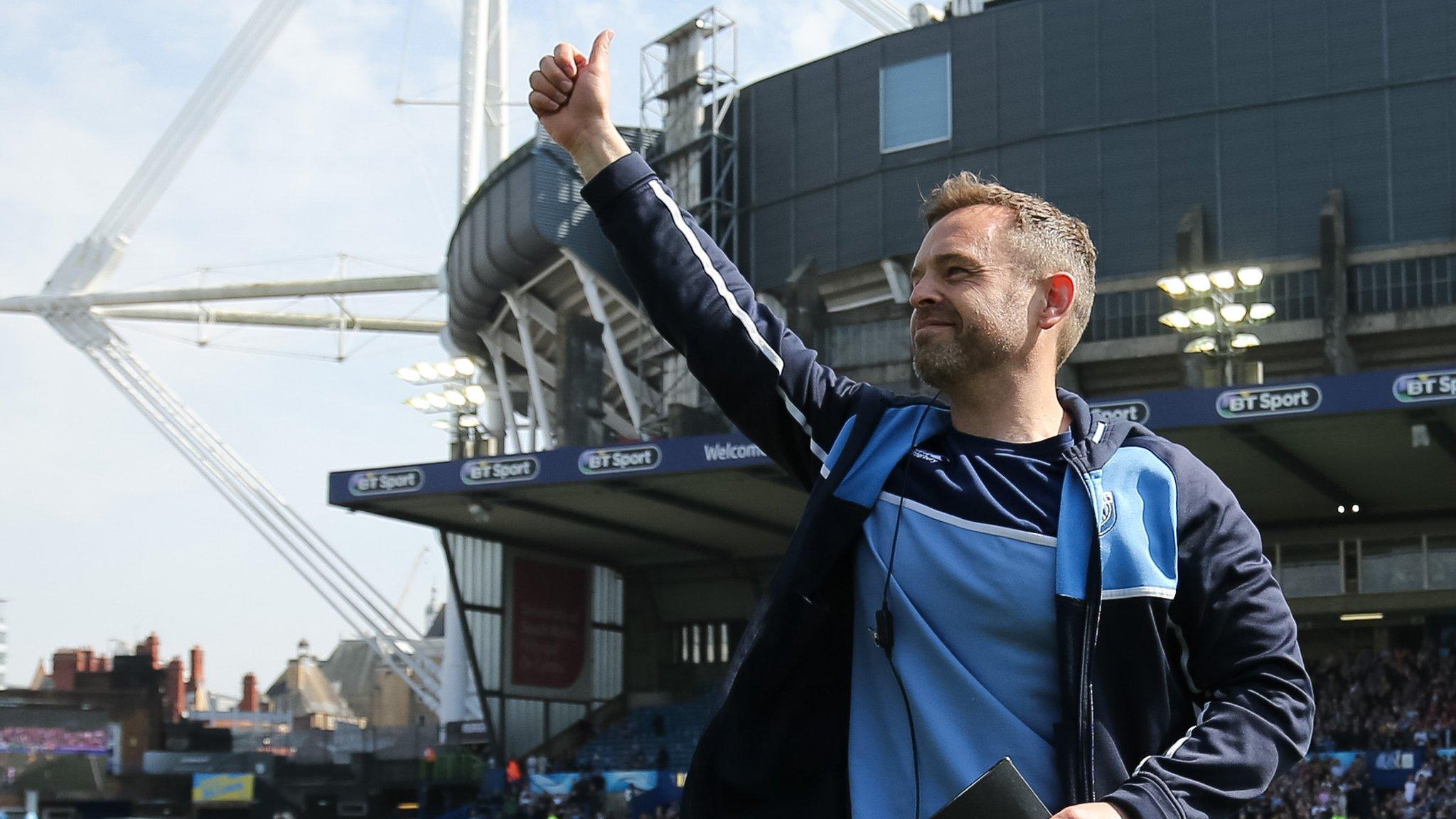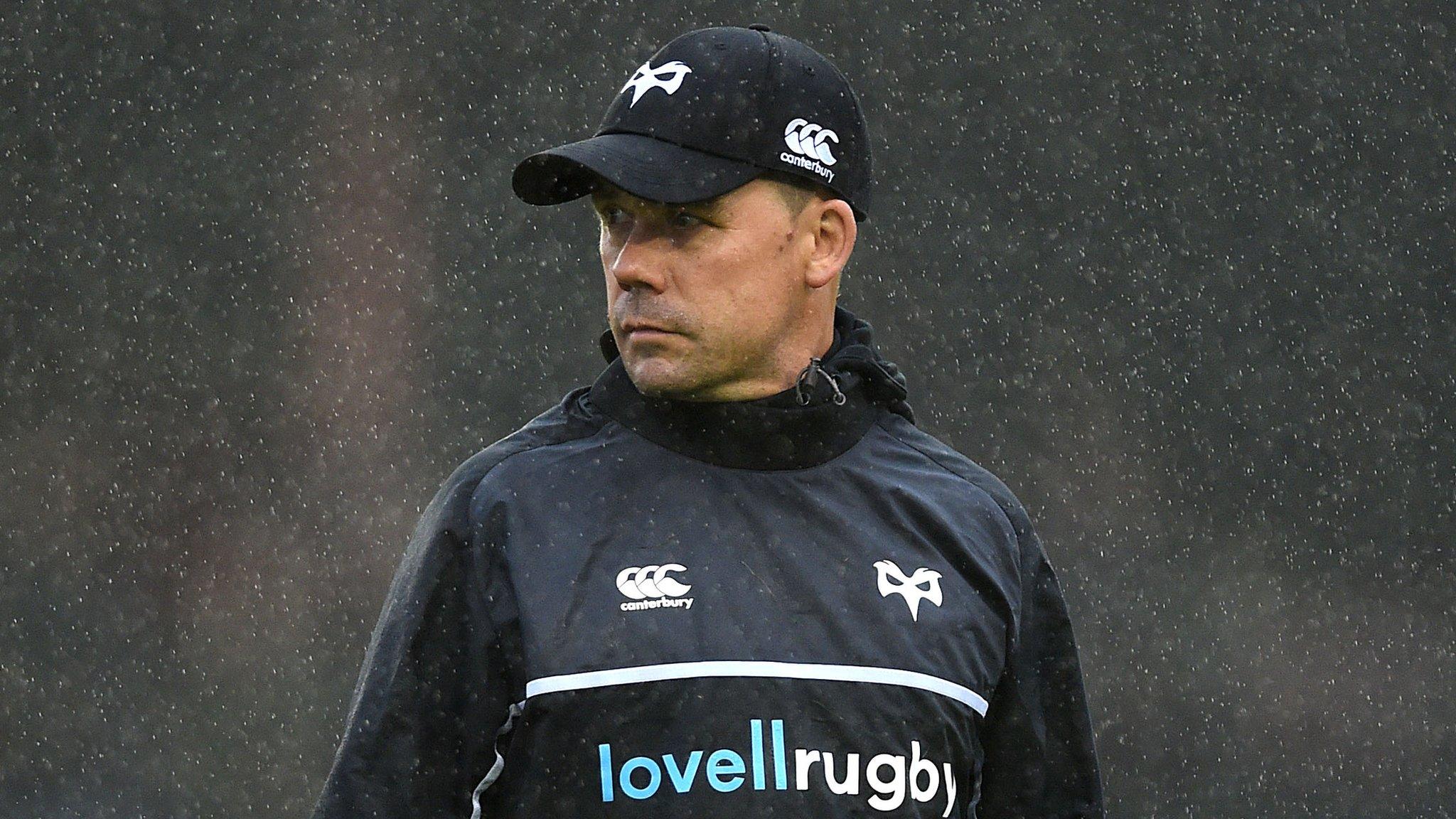Peter Thomas: Chairman's departure signals end of era for Cardiff Blues
- Published

Peter Thomas will stay on the Cardiff Blues board and take up the role of life president
Peter Thomas' decision to step down from his position at Cardiff Blues marks the end of an era which began with the advent of professionalism in rugby union.
Thomas has been chairman at Cardiff for more than 20 years and has seen his fair share of ups and downs in Welsh rugby.
While benefactors came and went at other Welsh clubs, Thomas has stayed the course at the Arms Park.
Ironically the man who has done so much for rugby in the Welsh capital actually hails from the Scottish capital having been born in Edinburgh, where his father was stationed during the Second World War.
Once back in Wales, the family ran a bakery business in Merthyr before Thomas himself launched Peter's Savoury Products, which would become the largest private company in Britain.
Having sold the business for £75m in 1988, Thomas would turn his focus to rugby and the Cardiff club which he had himself played for as hooker during the 1960s.

Peter Thomas congratulates Gareth Anscombe after Cardiff Blues beat Pau in the European Challenge Cup semi-final
His financial backing and business acumen would prove invaluable at a time when the game was turning professional.
Turning Cardiff RFC into a rugby powerhouse was no pie in the sky dream for Thomas.
The club's former fly-half, Gareth Davies was brought in as chief executive and the side reached the final of the inaugural Heineken Cup in 1996, narrowly losing to Toulouse in the final in extra-time.
Cardiff showed their intent with the recruitment of several high-profile players.
Welsh internationals Jonathan Davies and Dai Young returned from rugby league while the likes of Rob Howley, Neil Jenkins and Leigh Davies were snapped up from Welsh rivals.
However Cardiff's ambitions were outgrowing the domestic Welsh structure and, along with Swansea, they refused to play in the WRU-sanctioned Welsh Premier Division in 1998.
Cardiff were subsequently forced to play friendly matches against English opposition during what was known as the "rebel" season of 1998-99 before an agreement was reached with the governing body and they returned to the Welsh fray.
Competitive cross-border fixtures became reality in 1999 with the formation of the Welsh-Scottish League, a precursor to the Celtic League and eventually the Pro14.
That signalled the biggest ever upheaval in Welsh domestic rugby - the formation of five regional sides in 2003.

The late Jonah Lomu spent the 2005-06 season with Cardiff Blues
Thomas fought hard to retain Cardiff's identity at a time when rivals Swansea and Neath merged to form the Ospreys while Pontypridd and Bridgend joined forces as the Celtic Warriors.
Thomas bank-rolled further high-profile signings during this period with Wales rugby league star Iestyn Harris and, most famous of all, All Black legend Jonah Lomu.
Having lifted the EDF Energy Cup at Twickenham in 2009, the pursuit of European glory ended in the cruellest fashion a month later when the Blues lost the Heineken Cup semi-final to Leicester Tigers, external in an unprecedented penalty shoot-out.
However success was achieved a year later when Blues became the first Welsh club to win a European trophy - beating Toulon in the final of the second tier Challenge Cup in Marseille.
Blues left their traditional city centre Arms Park home for the new Cardiff City Stadium - home of the Welsh capital's football club.

Cardiff Blues have had 13 sets of coaching teams during Peter Thomas' tenure including Mark Hammett
But the move proved unsuccessful and amid poor crowds the region returned to the Arms Park for the 2012-13 season.
Blues put forward plans to give the stadium a multi-million pound facelift but that plan was rejected by landlords Cardiff Athletic Club in early 2017.
Having had an £8m offer for a 150-year lease at the Arms Park rejected by its owners, the Blues have considered moving elsewhere.
Despite uncertainty off the pitch Blues added a second European trophy this year when they won the Challenge Cup for a second time with a thrilling victory over Gloucester.
That was head coach Danny Wilson's final game in charge and with Thomas set to follow suit within the year, times are changing for the Blues.
- Published15 June 2018

- Published12 June 2018

- Published14 June 2018
